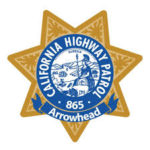Big Bear, CA, May 5, 2016 – In spring, hibernating bears emerge from their winter slumber and begin an almost perpetual search for food. It is not uncommon for a black bear to consume up to 20,000 calories a day. Unfortunately, this search can sometimes lead bears into populated areas and conflicts with humans.
“A bear’s nose is seven times better than a hound dog’s, and it will lead a bear to anything that is edible or smelly”, according to the California Department of Fish and Wildlife. Once a bear finds an easy food source, it will return again and again to the same location. Not only can bears get sick from ingesting trash, they can also become dangerous as they begin to associate humans with food. In order to keep bears in the wild and people safe, CDFW provides the following Bear Aware tips for people living in or visiting bear country.
For residents, purchase and properly use a bear-proof garbage container and wait to put trash out until the morning of collection day. Don’t leave trash, groceries or animal feed in your car. Keep barbecue grills clean and stored in a garage or shed when not in use. Don’t leave any scented products outside, including non-food items like suntan lotion and candles. Harvest fruit off trees as soon as it is ripe, and promptly collect fruit that falls.
For campers and hikers, store anything smelly including food, pet food and toiletries in bear-proof containers or in an airtight container in the trunk of your vehicle. Clean dishes and store food and garbage immediately after meals. Never keep food, toiletries or anything with a scent in your tent. When hiking make noise to prevent surprising a bear. Keep dogs on a leash. If you encounter a bear in the wild, back away slowly. Do not run. Raise your arms to look larger and speak in a calm, loud voice. Do not turn your back.




